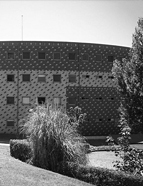

Clearly, it has not all been a bed of roses in the life of the initial 4th Cluster of the FL/UP over the last three decades. The period from 1981 to the dawn of the new century was one of stagnation of a senior generation, eager for power but not really coordinated with its future successors and predominantly conservative: hence, the heroes of the Lusitanian « History making » being placed almost exclusively in figures such as Virgínia Rau (1907-1973), Jorge de Macedo (1921-1996), José Vitorino Pina Martins (1920-2010) and Joaquim Veríssimo Serrão (b. 1925); and, consequently, the excluding tendency of names such as José Sebastião da Silva Dias, Vitorino Magalhães Godinho and even Oliveira Marques (but here the younger ones were able to impose themselves...) and establishing the Portuguese Academy of History or the inauspicious (at least until 1995...) National Commission for the Commemorations of the Portuguese Discoveries (CNCDP, 1986-2003) as ultimately in places... For these and other reasons, our country had almost no participation in the international program The Origins of the Modern State in Europe (1300-1800), of the European Science Foundation (1990s); of course, one may say, to each his own; but to expect other generations to have exactly the same way of thinking...
The 1980s were particularly difficult, especially in 1987 with the disastrous curricular reform (triggered in 1983 by the infelicitious Minister of Education of the Central Bloc Government, 1983-1985, an opportunity that was promptly seized upon by the avatars of the most conservative elements of the teaching staff of the FL/UP), which would take almost 15 years to eradicate: in the 1990s, various new restructuring efforts always ran into the flaccid resistance of the system or the bureaucracy of the Pedagogical Council... Only in 2001 would it finally be possible to reform the curriculum, with the adoption of the semester regime and credit units, preluding, à la longue, the Bologna regime (2007 ss. ). But this reform was no longer the work of the old schoolers ... As the departmentalization of the 4th Cluster had not been or come to be, first as the Department of History (2000), then as the Department of History and Political and International Studies (2005) ...
